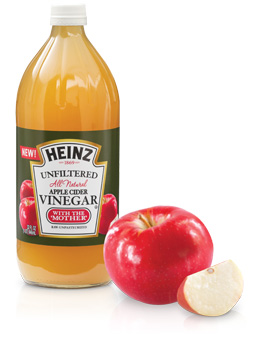
My college roommate used to turn down yogurt, saying, “I never eat rotten food.” Now, there may be reasons not to eat yogurt, but the fact that it”™s rotten isn”™t one of them.
Maybe a better term for “rotten” is fermented. Fermentation is highly beneficial for the digestive system, and we”™ll get to that. Meanwhile, how do we know if we should eat rotten foods?
Problems with bloating, gas, acid reflux, constipation and/or diarrhea are a sign. Even problems that seem unrelated to digestion could indicate that gut bacteria are out of balance: skin problems (such as acne), sleep problems, headaches, urinary tract infections, weight gain, and strong sugar cravings.
About 85% of the immune system is in the gut, and gut health affects inflammation, allergies, and autoimmune responses.
Good Bacteria, Bad Bacteria
[wlm_private 'PRO-Platinum|PRO-Monthly|PRO-Gratis|PRO-Seasonal|Platinum-trial|Monthly-trial|PRO-Military|30-Days-of-PRO|90 Day PRO|Stages-Instructor|Schwinn-Instructor|Instructor-Bonus|28 Day Challenge']
As you probably know, we have both good and bad gut bacteria. The good should outnumber the bad by 6 to 1 (or better). Various environmental factors — pollution, chlorinated water, farming pesticides — may throw off that ratio.
Dietary habits can negatively affect gut bacteria. Such habits include consumption of sugar, alcohol, or artificial sweeteners in diet beverages, diet foods and gum. Processed foods in general wreak havoc on the gut and the immune system by triggering inflammation.
Taking antacids or laxatives can disrupt gut flora and, in a self-perpetuating cycle, actually increase the need for the products.
Use of antibiotics is known to interfere with the gut environment. That applies to antibiotics in any animal products we eat, not just to prescription meds.
So How Can We Fix The Gut?
Eat rotten foods. Fermented foods are powerful detoxifiers that break down and eliminate heavy metals and other toxins. Fermentation destroys pathogenic bacteria and optimizes gut flora, balancing the ratio of good and bad bacteria.
Fermented foods produce enzymes and probiotics that help with digestion and improve vitamin and mineral absorption. Fermentation can actually produce B vitamins (which fight sugar cravings). It also “predigests” foods so they”™re more easily digestible.
Fermentation can regulate stomach acid production, increasing production when it”™s too low and decreasing it when it”™s too high. Fermentation preserves the nutrients in foods and can even increase food storage time and prevent the loss of nutrients.
Many countries have their own fermented favorites. Below are several fermented foods common in the U.S., with many more found worldwide.
- Soy is fermented to make tempeh, miso, or natto.
- Cabbage is fermented to make sauerkraut or the spicier kimchi, a popular Korean food.
- Milk is fermented for yogurt or kefir. Stay aware that flavored versions of these products contain sugar, which would seem to cancel some of the benefits.
- Kombucha is a fermented tea that contains small amounts of alcohol. Some people dismiss the alcohol in it as inconsequential. However, do what you feel is in your best interest. I drank it a couple of times and noticed a liking for it that made me suspicious. I stopped drinking it as a result, but that”™s me.
Apple Cider Vinegar
No list of favorable fermented foods is complete without apple cider vinegar. The folklore around it is vast. Old, well-worn books describe apple cider vinegar”™s value as both medicinal and preventive with daily use.
Apple cider vinegar contains acetic acid, said to be antimicrobial and antibacterial. Cider vinegar has been touted as beneficial for heart health, weight loss, and even fighting cancer tumors. Some of these claims are inconclusive at best.
A documented benefit of apple cider vinegar, however, is its ability to decrease glucose levels in type 2 diabetics. It offers a similar benefit in non-diabetics. Of course, that fact alone won”™t compensate for a diet loaded with sugar and/or refined carbs, but it does suggest that cider vinegar could complement a healthful diet.
Apparently, fermentation rocks. And my college roommate was off-target. Besides, she used to drink wine, and that”™s fermented.
I guess the real rotten food continues to be sugar. Ya think?[/wlm_private]
- New Year’s Resolutions: A Sugar Addict’s Survival Guide - April 15, 2024
- Motivation vs. Enthusiasm - October 12, 2023
- Why Exercise Shouldn’t Be Just One Thing - November 9, 2022
